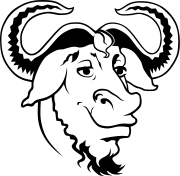
- Blogs (Apr 09, 2020)
- News (Sep 17, 2025)
- Organizations (Nov 04, 2023)
- People (Nov 03, 2023)
- Projects (Aug 08, 2024)
You can log-in or register for a user account here.
 Peer-to-Patent is a pilot project in collaboration with the US Patent and Trademark Office. It was established in 2007 and recently extended/expanded to June 15, 2009. It is focused on helping the patent office perform high-quality examinations of pending patent applications by enlisting the public to help find and explain prior art.... Peer-to-Patent uses social software features to facilitate discussion amongst groups of volunteer experts. Users can upload prior art references, participate in discussion forums, rate other user submissions, add research references, invite others, and more. This helps the examiners focus their attention on the submission(s) of prior art that have the highest relevance to an application.
Peer-to-Patent is a pilot project in collaboration with the US Patent and Trademark Office. It was established in 2007 and recently extended/expanded to June 15, 2009. It is focused on helping the patent office perform high-quality examinations of pending patent applications by enlisting the public to help find and explain prior art.... Peer-to-Patent uses social software features to facilitate discussion amongst groups of volunteer experts. Users can upload prior art references, participate in discussion forums, rate other user submissions, add research references, invite others, and more. This helps the examiners focus their attention on the submission(s) of prior art that have the highest relevance to an application.Beth Simone Noveck, Law Professor, and Director, Institute for Information Law and Policy, New York Law School launched the Peer to Patent: Community Patent Review project.
Incentives for submitting an application to the project include:
• Expedited review. Public review begins one month after publication of the application. Review continues for four months, after which the patent examiner conducts an expedited examination of the patent application.
• Potentially stronger patents. If Peer-to-Patent review works as expected, patents that survive the process have already undergone considerable scrutiny and will be less at risk of a successful challenge later.
• Public service. Applicants can feel they are contributing to a valuable experiment in new models and technologies for public decision-making.
"The Peer-to-Patent Web site is built using open source technologies (RoR, MySQL, Linux OS). Hosted database/web servers, load balancers, and interactive features (threaded discussions, e-mail alerts, RSS feeds, social bookmarks, video clips, tagging, ratings, and more)."
Sponsors: CA, Inc., General Electric, Hewlett Packard, IBM, Intellectual Ventures, John D. and Catherine T. MacArthur Foundation, Microsoft, Omidyar Network, and Red Hat. Peertopatent.org content is licensed under a Creative Commons Attribution-Noncommercial-ShareAlike 3.0 US License, except where otherwise noted.
 Unmuseum recommended reading:
Unmuseum recommended reading: In addition, view the open exhibition catalog by Sterling Israel M.S. curating and archiving Eco-Art & Artists titled,

"Basic Open System Model" by Anonymous, wikipedia, Public Domain
<<< The Open Museum >>>
Digital Art Media Progam (DMAX)
UC Berkeley Art Museum and Pacific Film Archive
...the first open-source museum collection - is a preservation repository
and online database of born-digital art. This next-generation cultural works project,
currently in the planning phase, also provides a testbed for developing innovative legal,
economic, and cultural frameworks for the digital arts.
<<< Open Source Museum of Open Source Art >>>
Department of Modern Culture and Media
Brown University
...the museum is entirely in the public domain
(add, modify, or remove art, likewise, elements of the building).
Our goal is to reimagine definitions of art, artist,
curator, museum, culture, and open source.
This project is underway in a virtual reality called Second Life.
<<< Online Spaces >>>

"Galactic Trading Cards Installation"
Illuminated, by PodCollective
p.s. worth checking out when in a deeply reflective state...
Molotov Alva and His Search for the Creator

Photo by John Swords via Flickr
(CC) Attribution-Noncommercial-No Derivative Works 2.0 Generic
[Part I] [Part II]
... more to come ...
 "WCI student isolates microbe that lunches on plastic bags" (via The Record)
"WCI student isolates microbe that lunches on plastic bags" (via The Record)Synopsis: Daniel Burd's stew contains ground-up plastic in a mix of landfill dirt, yeast and tap water. After experimenting with different temperatures and configurations, he isolated the microbial remediators. He discovered that it biodegrades over 40% of the weight of plastic bags in less than three months. The only waste is water and a bit of carbon dioxide.
"This is a huge, huge step forward... We're using nature to solve a man-made problem."
Daniel Burd, 16-yr-old junior, Waterloo Collegiate Institute & Canada-Wide Science Fair winner
of packaged goods and non-reusable baggage remains a high priority.
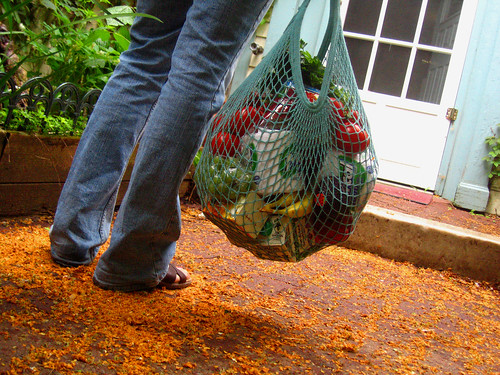
"String is king" by fixlr (via Flickr)
(CC) Attribution-Noncommercial-Share Alike 2.0 Generic
How to help limit the ever-growing patch of garbage floating in the Pacific Ocean:
• Limit use of plastics when possible.
• Use a reusable bag when shopping.
• Take your trash with you when you leave the beach.
• Make sure trash bins are securely closed.
 "When generativity, creativity, generosity, and the capacity to embrace life dry up, the Water of Life has gone underground. At such times, the earth becomes arid, life becomes devoid of meaning, the ground of culture cracks and splits, and gaps develop among peoples and between people and nature. Only water can bring the pieces back together, awaken seeds hidden in the ground, and enliven the parched Tree of Life."
"When generativity, creativity, generosity, and the capacity to embrace life dry up, the Water of Life has gone underground. At such times, the earth becomes arid, life becomes devoid of meaning, the ground of culture cracks and splits, and gaps develop among peoples and between people and nature. Only water can bring the pieces back together, awaken seeds hidden in the ground, and enliven the parched Tree of Life."- Michael J. Meade, Men and the Water of Life: Initiation and the Tempering of Men (1994)
"...the simplest, most direct answer to the question of how do we make our society stronger. Whether your working for the environment, health, or education, it doesn't matter so much as long as you're working at it. The great resource of any country is the energy and intelligence of its people. That's where the investment of money and thought ought to go..."
- Lewis H. Lapham, Editor & Historian ("if you're not in, you're out." ?)
"The future is now." "I make technology ridiculous."
- Nam June Paik, Composer & Video Artist (1932-2006) & author of the phrase "Information Superhighway"

"The crime of difference is eclipsed by the power of self realization"
by Steven "Frustr8" Lopez, © used with permission by Imaginify

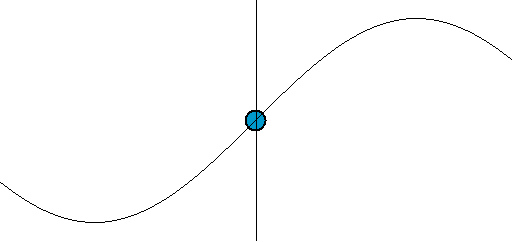
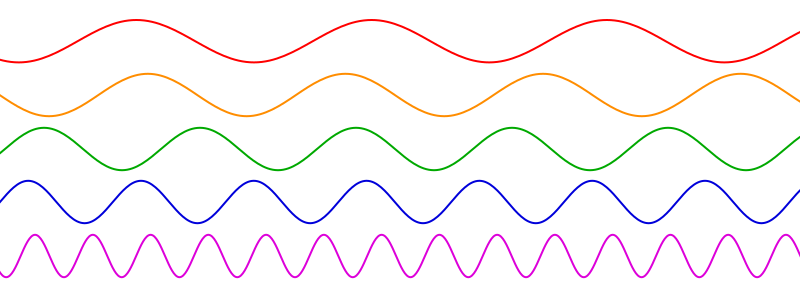
*NEW* FROM BERKMAN CENTER @ HARVARD LAW
"What Ben Franklin Teaches us about Intellectual Property"
or “I Own Creative Content, Therefore I Am, Not”
MP3 AUDIO | MP4 VIDEO

- Lewis Hyde, Richard L. Thomas Professor of Creative Writing, Kenyon College &
Fellow, Berkman Center for Internet and Society, Harvard University
Author: Trickster Makes This World: Mischief, Myth, and Art

"We have lived by the assumption that
what was good for us would be good for the world.
We have been wrong.
We must change our lives, so that it will be possible
to live by the contrary assumption that
what is good for the world will be good for us. . .
We must recover the sense of the majesty of the creation
and the ability to be worshipful in its presence.
For it is only on the condition of humility and reverence before the world
that our species will be able to remain in it."
- Wendell Berry, American man of letters, academic and farmer

-StewBrand, The First Hackers' Conference, circa 1984
"At some level, the expression does carry the moral judgement that
"Information should be free": the idea that access to information and
knowledge should not necessitate a class war,
that such access is a basic human right,
and, as technology improves, the whole of humanity
should be able to partake in its gifts and services."
- Wikipedia, circa 2006
(All text is available under the terms of
the GNU Free Documentation License)

From MURL Seminar Archive, Stanford, CA
--- circa 2003 ---
From Counterculture To Cyberculture: How The Whole
Earth Catalog Brought Us "Virtual Community."
VIDEO *
--- circa 2005 ---
Where the Counterculture Met the New Economy: Revisiting
the WELL and the Origins of Virtual Community.
--- circa 2006 ---
From Counterculture to Cyberculture: StewBrand, the Whole
Earth Network and the Rise of Digital Utopianism.
INTRO | EXCERPT **
Synchronisticly, Worldchanging: The Book is being made available NOW!

--- circa late 2006 ---
From The Legacy of the Whole Earth Catalog

Stanford University Libraries & Department of Communication
INVITE | VIDEO
"Leading a Double Life" 10/25/2006
From the Berkman Center at Harvard University.
Their mission is to explore and understand cyberspace,
its development, dynamics, norms, standards,
and need or lack thereof for laws and sanctions.
They are a research center, premised on the observation
that what we seek to learn is not already recorded.
Their method is to build out into cyberspace,
record data as we go, self-study, and publish.
Their mode is entrepreneurial nonprofit.
Presents:
From Counterculture to Cyberculture:
The Rise of Digital Utopianism
MP3 AUDIO | MP4 VIDEO
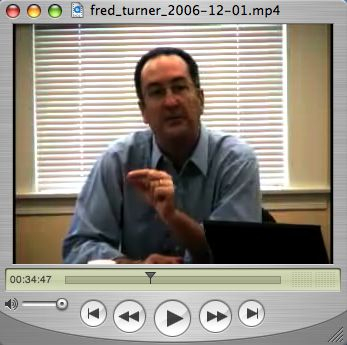
By Fred Turner [FredTurner]
Department of Communication, Stanford University
--- circa 2007 ---
University of California at Berkeley, School of Information
Howard Rheingold/Qiang Xiao
Participatory Media / Collective Action
Part I: Participatory Media and Theory of Networks
Part II: Communication, Media and Cyberpower
Part III: Networked Activism
"...Instructors and students will discuss finalizing the wiki
we have contructed over the previous ten weeks and publishing it
as a public resource on collective action and participatory media.
We'll discuss how to maintain and grow this resource in the future.
We will speculate about future possibilities, given the technologies,
social forces, and cultural trends discussed during previous weeks,
and about ways in which media can be used to strengthen democracy,
advance human freedom and dignity, and enable sustainable development."
*NEW*
The National Autonomous University of Mexico
Cyberculture and Cybercultur@&lt;/b>
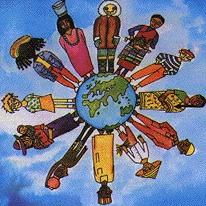
"emphasize three directions of meaning
from the elements that compose the neologism:
the Greek prefix “Κψβερ” (cyber),
the Latin word “cultur”,
and I will take analogically
the spiral form of the sign “@”...
“cybercultur@”
- Jorge A. González, Professor, Latin American Media
Universidad Nacional Autónoma de México
FlowTV, Vol.5, April 20, 2007


Wikimania 2006 eArchive [8.09.06]
Wikimedia Conference, by Jimbo Wales, Eben Moglen, Lawrence Lessig, Judith Donath, Ward Cunningham, Chris Messina, Brewster Kahle, Michael Eisen, Jenny Preece, Mitch Kapor...

• Open-Source Networked Journalism Meets SmartMobs [8.09.06]
MasterNewMedia, by Robin Good
• Credibility and copyrights in the new improved media [8.09.06]
InTheField, by Erik Sundelof (2006 RDVP Fellow)
• Futurism Without Gadgets [8.07.06]
Open the Future (Podcast #1), by Jamais Cascio
• Chance and choice experiences, presencing as community art [8.06.06]
Community-Intelligence, by George Por
• Cell phones: A new tool in the war-zone blogosphere [8.01.06]
CNN, by Marsha Walton

• Can Technology change Social Processes? [7.30.06]
Reuters Digital Visions Program, by Carlos Miranda Levy (2004 Fellow)

• Introducing NewAssignment.Net [7.25.06]
Journalism.NYU.Edu, by Jay Rosen

• Stanford Fellow Imagines Every Cell Phone as Citizen Media Outlet [7.18.06]
PBS, by Mark Glaser

 Recognizing the rights of both the users and the creators of art, this art show was organized in support of creative works that enable a more participatory culture.
Recognizing the rights of both the users and the creators of art, this art show was organized in support of creative works that enable a more participatory culture. 
Why is this important?
Just think: where would Disney be if there were no fairy tales?
"Sharing is Daring" is a showcase of new & derivative artworks released under flexible licenses that allow for sharing & remixing.
What is Harvard Free Culture? [[ Mailing List | Blog | Wiki ]]
A group of artists, bloggers, computer geeks, and activists who believe:
A healthy, vibrant culture must continually be improved and refashioned by those who live in it. This requires a thriving public domain and cultural commons that anyone can build upon or reshape. The Free Culture Movement aims to empower individuals and communities to reject mere consumption of culture in favor of participation, to actively critique, create, and innovate in media, technology, and art. To achieve this ideal, Harvard Free Culture seeks to promote open intellectual property policy and channel the power of technology toward appreciation, creation, and distribution of participatory culture.
 JOIN IN THE... FREE & OPEN SOURCING OF 2ND LIFE ROADMAPS
JOIN IN THE... FREE & OPEN SOURCING OF 2ND LIFE ROADMAPSThe Open Source Metaverse Project provides an open source metaverse engine
as an alternative to the commercial metaverse engines (Second Life, There and Active Worlds..).
UNTIL THEN, HERE WE ARE...

Creative Commons in 2ndLife... What's next? Open Source Webmap APIs?

Lawrence Lessig, analog in the digital.
- Apache HTTP Server
- Audacity [audio]
- Blender [3D suite]
- Brave [browser]
- EMS Resources
- Firefox [browser]
- FreeCAD [modeler]
- GIMP.org [graphics]
- Inkscape [vector]
- Krita [painting]
- LibreOffice
- Linux Kernel
- Mattermost [team]
- MediaWiki
- Moodle [LMS]
- Mozilla Hubs
- NetNewsWire
- Nightingale [music]
- OBS Studio
- QGIS [Geo-Info-Sys]
- SeaMonkey [editor]
- Shotcut [video editor]
- Thunderbird [email]
- Thunderbird Lightning
- VLC [VideoLan]
- Wordpress [CMS]
- xiph Vorbis [ogg]
- XMPP [comm]
INTERNET ARCHIVE
WIKIMEDIA FOUNDATION
OPEN COURSEWARE
- Archive Educational
- BerkeleyX
- UCambridgeX
- ColumbiaX
- Commons
- EdX
- DelftX
- ETHx
- Encyclopedia of Life
- HarvardX
- Harvard Online
- Harvard U
- CancerCommons
- Identity Mashup
- LSEX
- Merlot
- MIT OpenCourseware
- MITX
- Neuropathy Commons
- Northwestern U
- OpenCulture
- Open Edu Global
- Open Journal Systems
- OpenStax at Rice
- Open U OER
- Oregon State U
- SchoolForge
- Stanford U
- Tree of Life (glossary)
- U of Michigan
- UTAustinX
- U of Oxford
- Wikiversity
- Yale Open Courses
• Deep Learning
• Machine Learning
• Reinforcement Learning
• Neural Network
• Artificial Intelligence
OPEN FORGES
OPEN METAVERSE
• Blender [3D Suite]
• Firestorm Viewer
• GitHub
• Hubs Foundation
• Libre3D
• Metaverse Project
• NIH 3D Print Exchange
• OpenKinect
• OpenNI2
• OpenSim
• OpenSourceVR
• PlayCanvas
• Sirikata
• Sketchfab
• Thingiverse
• 3D Warehouse
• Unity 3D
• WebGL (Moz)
• WebXR API (Moz)
• Yeggi
• YouMagine
- Arxiv at Cornell
- Arxiv Computer Research
- Arxiv Mathematics
- Arxiv NonLinear Sciences
- Arxiv Physics
- Arxiv Quantitative Biology
- Berkeley Electronic Press
- BioRrxiv
- Free Legal Resources
- MediArXiv
- Public Library of Science (PLoS)
- PLoS ONE
- PLoS Biology
- PLoS Complex Systems
- PLoS CompBio
- PLoS Genetics
- PLoS Medicine
- PLoS Systems Science
- Science Commons
- Smithsonian
- Wex Legal Dictionary
- Alternative Freedom
- Brothers Chudnovsky
- Century of Self
- Conundrum
- Design-e2
- Digital Nation
- Einstein's Big Idea
- The Elegant Universe
- Evolution
- The Facebook Dilemma
- Fritjof Capra
- Generation Like
- The Grey Video
- Growing Up Online
- How Art Made the World
- In the Age of AI
- Last Child in the Woods?
- Life Incorporated
- Merchants of Cool
- Mirror Neurons
- OurMedia
- OS Media
- The Persuaders
- Plastic Wars
- Present Shock
- RecentChangesCamp06
- Revolution OS
- Who Owns Culture?
- Definition
- MP3 7.2MB
- More A/V
- Stanford Talk
Games- Agility
- Drawing
- OS Games
- Spelling
Media Ecology- Definition
- Tetrad of Effects
Optics- Dymaxion Map
- Hubble Telescope
- James Web Telescope
- Map - Territory
- Op Art
- Virtual Globe
- Visible Earth
Systems Science- 68th Proceedings
- 67th Proceedings
- 66th Proceedings
- 65th Proceedings
- 64th Proceedings
- 63rd Proceedings
- 62nd Proceedings
- 61st Proceedings
- 60th Proceedings
- 59th Proceedings
- 58th Proceedings
- 57th Proceedings
- 56th Proceedings
- 55th Proceedings
- 54th Proceedings
- 53rd Proceedings
- 52nd Proceedings
- 51st Proceedings
- 50th Proceedings
- Retrospective 12
- Retrospective 11
- Retrospective 10
- Retrospective 09
- Retrospective 08
- Retrospective 07
- Retrospective 06




